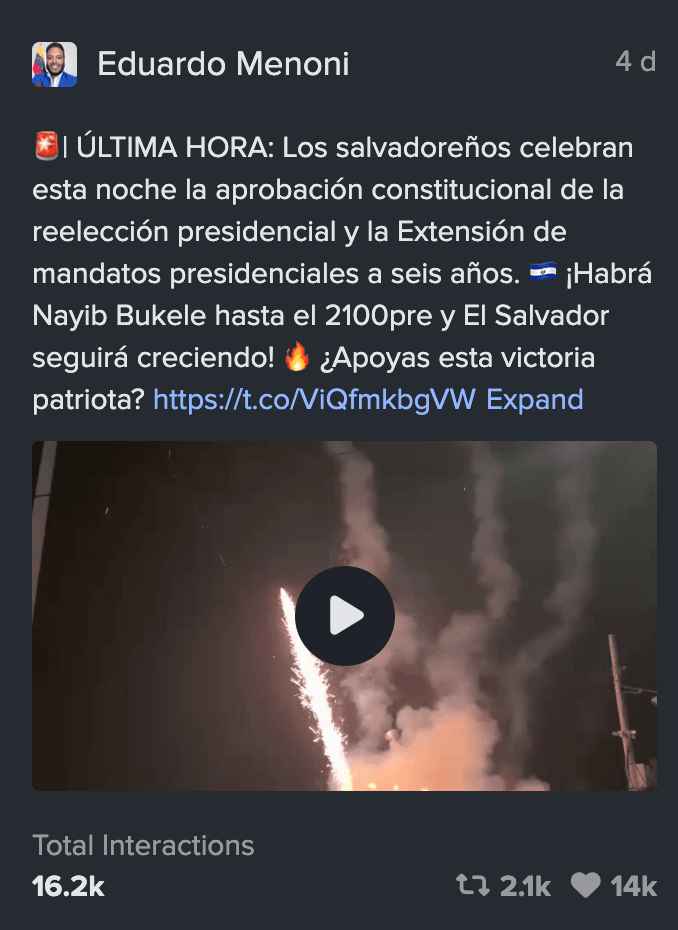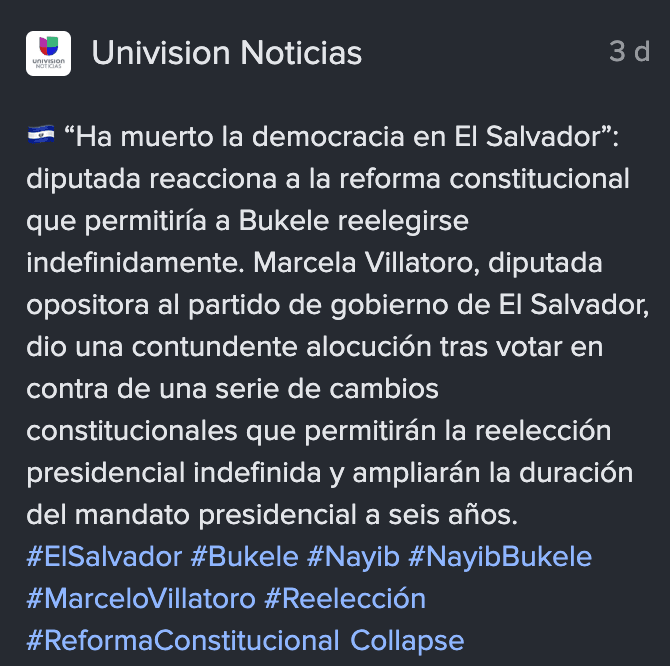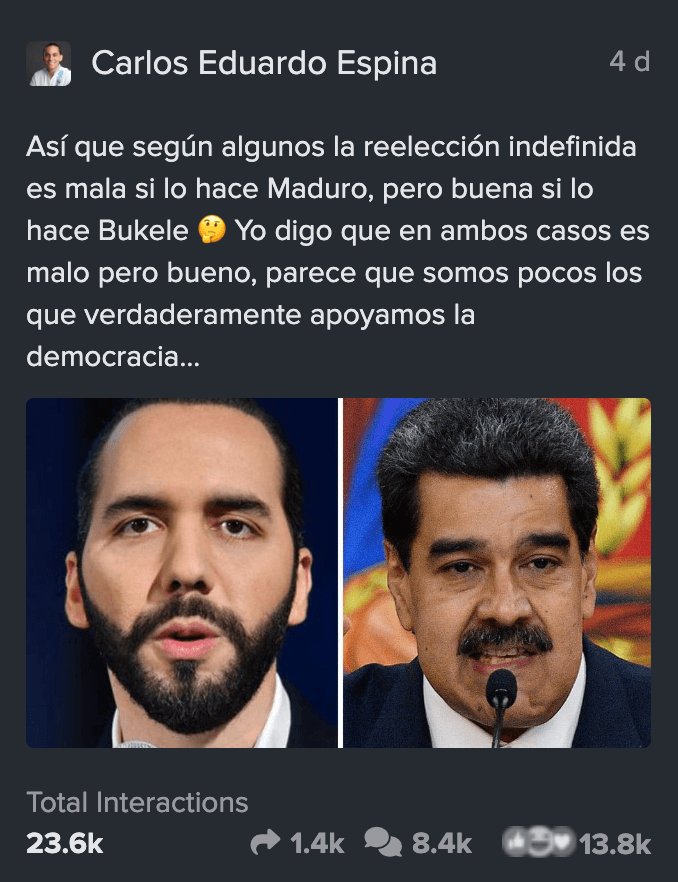On July 31, El Salvador’s ruling party, led by President Nayib Bukele, pushed through constitutional reforms that open the door to indefinite presidential reelection and extend presidential terms to six years.
The move sparked a wave of reactions among U.S.-based Latinos, who flooded social media with their opinions. Engagement was intense: at least 1,256 posts appeared across Facebook, X, TikTok, Instagram, and YouTube mentioning “Bukele,” generating nearly two million likes, comments, and shares – an average of 1,500 interactions per post.

An analysis of the content of these 1,256 posts indicates that Spanish-speakers expressed at least three perspectives on this political move.
The first and largest narrative is pro-Bukele and pro-reelection. Posts in this category portray Bukele as a strong and effective leader who has transformed El Salvador. Supporters highlight that the country now enjoys peaceful streets, cultural festivals, and visible results from the war on gangs, which they consider justification for breaking traditional democratic limits. Right-wing influencers like Eduardo Menoni have embraced this view, stating that Bukele “is the only one who can guarantee security and stability for El Salvador.”
In one of the 18 posts Menoni published this week celebrating the Salvadoran president, he included a video of people supposedly “celebrating” the newly approved constitutional reforms. However, the footage only shows fireworks in a public park with two men watching silently – no applause or chants are heard.

The second most common perspective takes the opposite view: anti-Bukele and pro-democracy. Posts in this category argue that indefinite reelection equals authoritarianism or a slide toward dictatorship, regardless of Bukele’s popularity. Spanish-speaking users in this camp often compare Bukele to Nicolás Maduro (Venezuela), Daniel Ortega (Nicaragua), and Fidel Castro (Cuba), warning that no leader should have indefinite power.
Congresswoman Marcela Villatoro, a vocal opponent of Bukele, emerged as the leading voice of this group. Her congressional speech was amplified by Univision Noticias under the emotional headline: “Ha muerto la democracia en El Salvador.” Other Hispanic media outlets, including Telemundo, MundoNow, and CNN en Español, also framed the reform as anti-democratic and began using terms like “dictadura” to describe potential impacts of these changes.

The third narrative detected among Latinos highlights double standards. Carlos Eduardo Espina, a left-leaning U.S-based influencer, published 12 Facebook posts criticizing what he sees as hypocrisy: some Latinos and international media condemn left-wing indefinite reelection but seem to tolerate Bukele’s because he is right-wing.

A sentiment analysis conducted by our team using AI tools revealed how emojis were weaponized by both sides in this situation:
Pro-Bukele posts used fire, heart, Salvadoran flag.

Critical posts favored alert, fear, doubt.

Double-standard posts leaned on irony and skepticism.

Anti-Bukele voices rallied around #BukeleDictador and #ElSalvador, framing the move as the “death of democracy,” while pro-Bukele content leaned on a simple #Bukele to express their support. It is crucial to note that some Latino users with unclear political positions used hashtags like #FYP (“For You Page”, on TikTok), and #ParaTi (curated “For Your Page", on Instagram) to make sure the news coming from El Salvador would go beyond political audiences.
